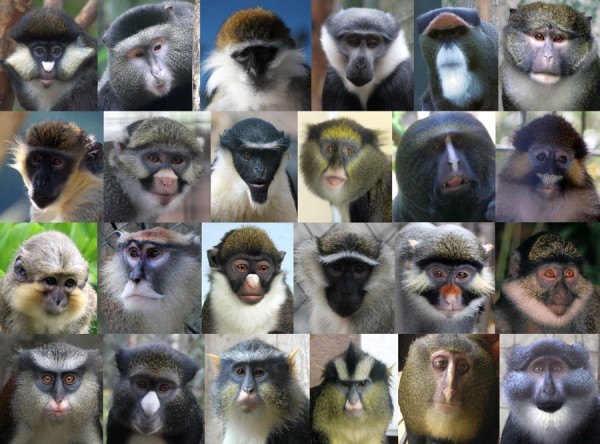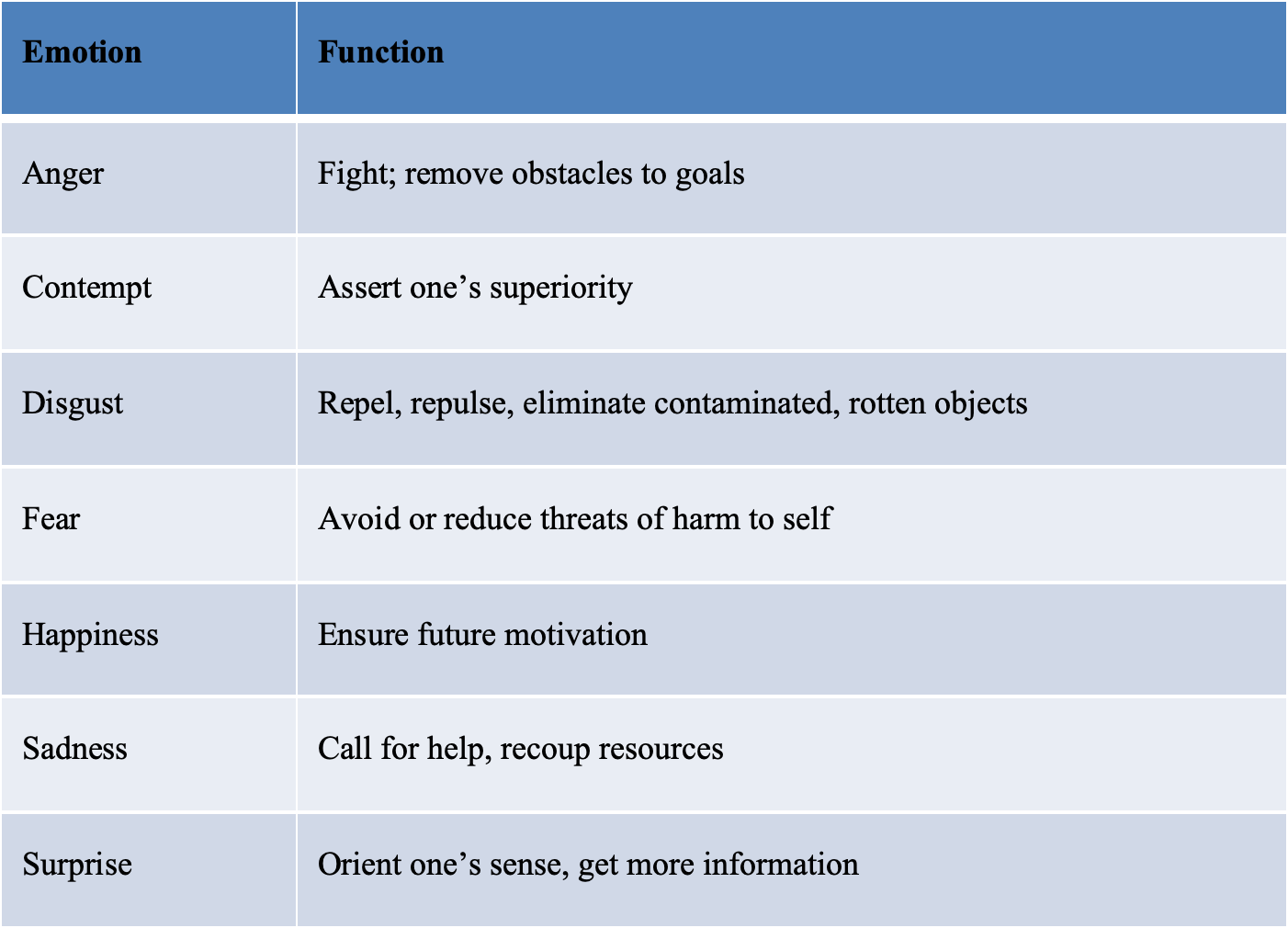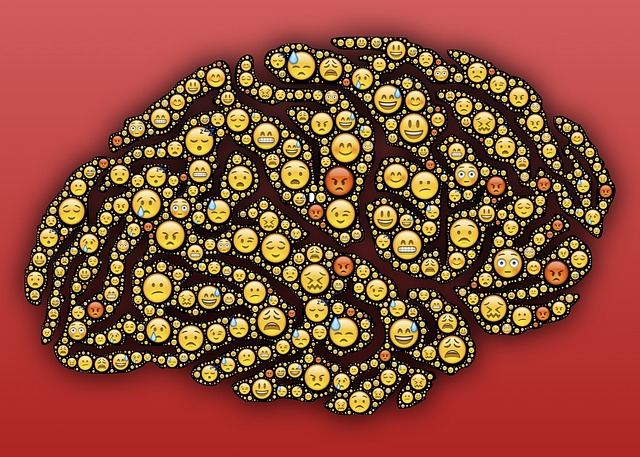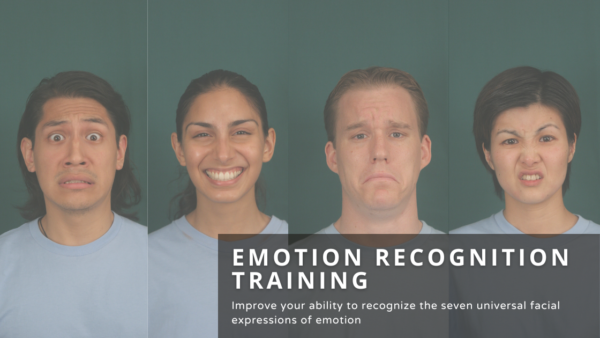Ever wonder why we have emotions? Emotions seem to cause all kinds of problems, from being distractions to disrupting our critical thinking, which is why we spend so much time trying to find ways to regulate them. So wondering about why we have them in the first place is natural.
Emotions are a Vestige of our Evolutionary History
 And are primarily controlled by an archaic part of the human brain. Despite what we may want to think, having an emotion system that appraised events around us and triggered emotions was helpful in that evolutionary past, for many reasons.
And are primarily controlled by an archaic part of the human brain. Despite what we may want to think, having an emotion system that appraised events around us and triggered emotions was helpful in that evolutionary past, for many reasons.
That very same emotion system helped humans to ward off threats, fight for food, obtain and keep mates, build families and communities – basically to survive. Moreover, that system helped us humans to survive in many situations that required an immediate response or action.
The Spoiled Milk Example
For example, recall the example of drinking spoiled milk. Suppose you were like my kids when they were younger (and probably even now), and just went over to the refrigerator in the morning for some milk.
Instead of putting it in a cup to drink as their mother always told them to do, you just opened the carton and started chugging it. But as the cold liquid was going down your throat, you started to realize the sour taste. And the lumps. And the putrid smell.
At that moment, would you take the time to contemplate the risk-benefit ratio of just gulping it all down vs. not?
Well, if you did take the time to think it all through, you would have ingested that spoiled milk and it would be in your system, along with all the other contaminants in there, which would obviously make you sick and/or even bring about death. That definitely wouldn’t be good for survival!
Why We Have Emotions
Emotions help us react in some situations with minimal conscious awareness. They help us freeze or flee when there’s an immediate danger, to fight when there’s an obstacle to our goals, or to repel spoiled, rotten, or contaminated things, like spoiled milk, before we ingest them.
Thank god we don’t go through such time consuming, risk-benefit calculations for many life or death events and situations – those that have implications for our health or safety.
Those with that system survived and remain here today; those without that system were selected out of existence by nature.
We’ve discussed how each of the basic emotions are triggered by a universal, underlying psychological theme. In the very same way, each of the basic emotions have a unique function, that is, each helps us do something fairly specific. All of these aid us ultimately in our survival.
Thus, getting a handle on the function of each of the basic emotions gives us an idea of why we have each of these emotions in the first place, and what roles they played in getting us here.
Here’s a brief list of the functions of each of the seven basic emotions that are universally expressed:

How Do Emotions Help to Achieve These Functions?
Here’s the key: decades of research has demonstrated that, when each of the emotions above is elicited, the emotion system recruits and turns on an organized, coordinated system of bodily responses that prepare the body for action.
In the scholarly literature, this is known as action readiness, a term coined by the famous emotion scholar Nico Frijda. This system of emotional responses gates our cognitions and thinking, turns on specific psychological signatures that prime our bodies for action, produces specific feelings, and is associated with specific behavioral signatures in the face, voice, and body. All of these prepare us to act.
By the way, this research evidence exists only for the basic emotions above and not the many other emotions humans experience. That’s why we believe this is a very special list of emotions.
 Brainy Things
Brainy Things
Now, humans have a part of the brain called the cortex, which allows us to learn and remember rules and to think before acting most of the time.
So, whether we act or not is an interaction of our emotions, the context, norms, and needs at the time.
Nonhuman animals that have primitive emotions don’t have as much cortex, and thus just act impulsively or reflexively when emotional. This emotion system allows emotions to achieve the functions above, all of which have helped humans survive since we’ve been around.
If you want to have a better understanding of your own emotions, thinking about what function each plays in our lives when you have it may be interesting and meaningful for you.
Sometimes I hear people say that life would be better if we didn’t have emotions, or that even though emotions may have been useful for human life sometime in the past, they’ve outlived their utility to us.
Certainly seems to me that there’s many out there in today’s world who believe that artificial intelligence, robots, and other forms of technology will be able to replace humans in many situations; these technologies certainly are playing a larger role in everyday societies today more than ever before. And quite honestly, life for many in contemporary society with our modern inconveniences is pretty cushy.
Nowadays more people seem to panic because of loss of a cell signal or low battery than because of being attacked by a predatory animal.
To me, nothing could be further from the truth.
 Emotions give our lives meaning, and life without emotions is impossible to imagine.
Emotions give our lives meaning, and life without emotions is impossible to imagine.
The joy we feel when we accomplish a tough goal, the pleasure of the touch of a loved one, and the fun we have with our friends on a night out all color our lives in profound ways.
Even our negative emotions are important: the sadness when away from our loved ones, the death of a family member, the anger when violated, the fear that overcomes us in a scary or unknown situation, the guilt or shame toward others when our sins are made public, and yes the panic from low battery or forgetting one’s cell phone.
From the thrill of victory to the agony of defeat, emotions color our lives. They inform us of who we are, what’s important to us, what our relationships with others are like, and how to behave.
Without emotions, those events would be mere facts. What more important function of emotion could there be than to give our lives meaning?
